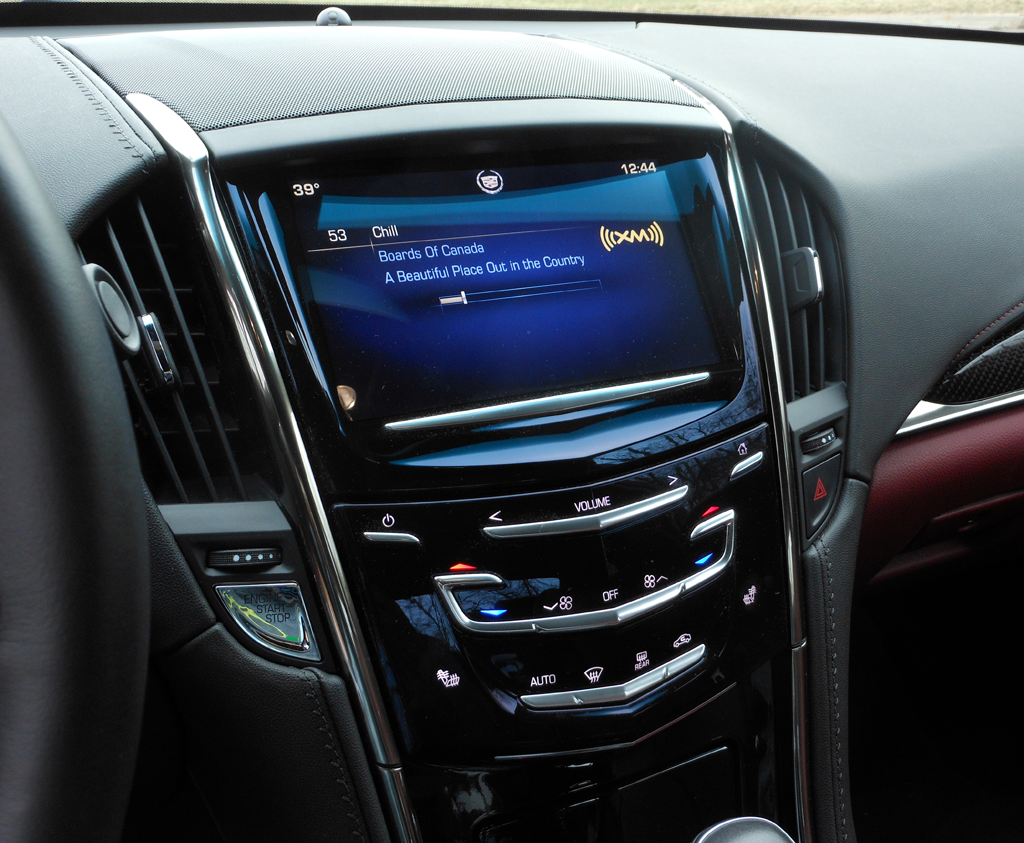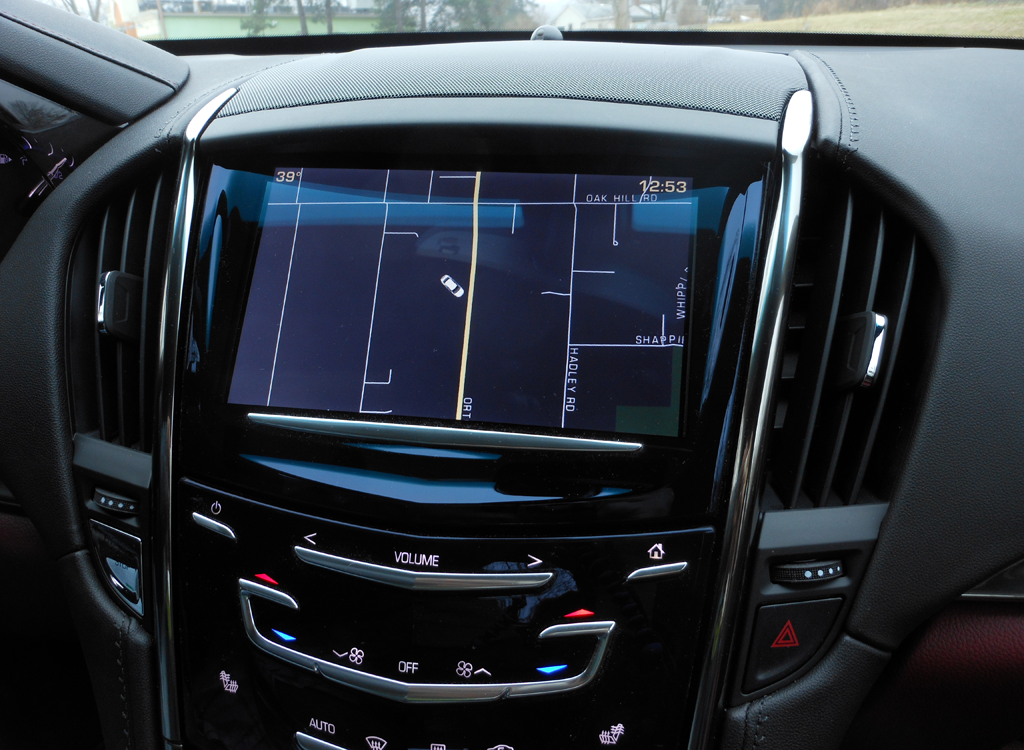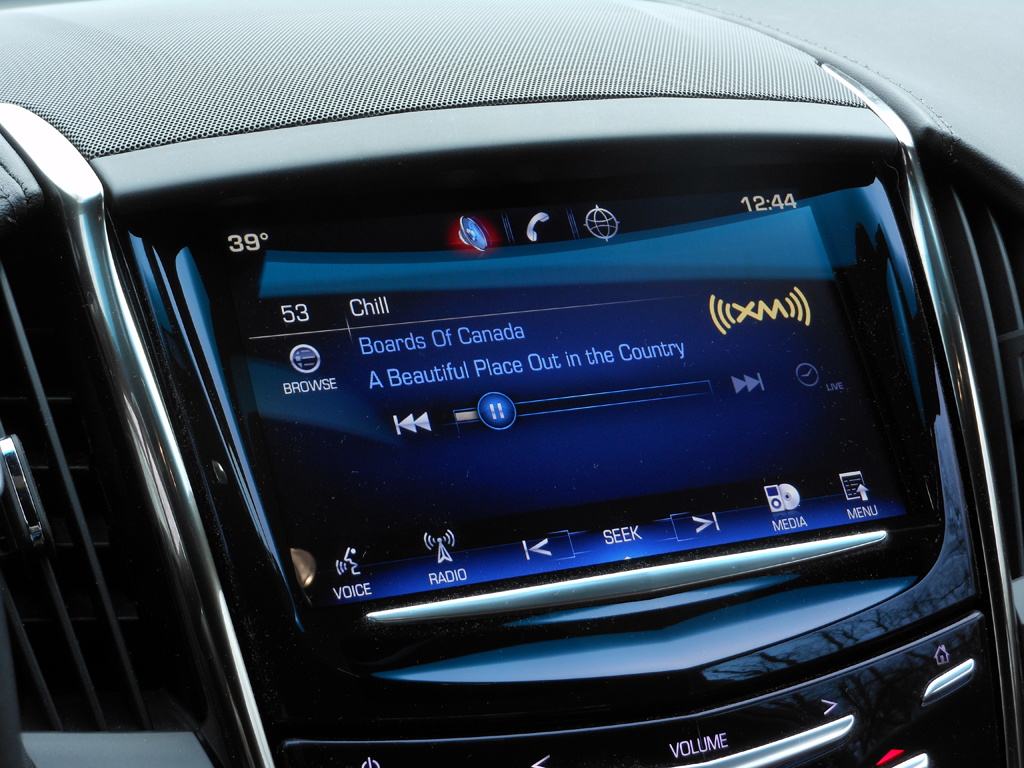William Maley
Staff Writer - CheersandGears.com
December 12, 2012
The introduction of the new Cadillac XTS at last year’s Los Angeles Auto Show marked the beginning of a new era. The XTS would be one the first Cadillac models to use their new CUE (short for Cadillac User Experience) infotainment system. Since then, CUE has made its way into new ATS and refreshed SRX. I sampled CUE in the 2013 Cadillac ATS 3.6 AWD reviewed yesterday.
CUE is made up of four key components: a large eight-inch capacitive touch screen with haptic feedback. This means when you press the screen, you’ll feel a pulse as if you had pressed a button. The screen also features a proximity sensor which allows the system to bring up controls when a hand is waved or fades the controls, giving a less distracting screen. Next is the capacitive touch buttons which sit underneath the screen and feature haptic feedback as well. Third is the voice recognition system which can control certain functions of the system. Finally, there is a reconfigurable LCD instrument panel that a driver can customize to their liking. This is only available on the SRX and XTS. The ATS makes due with a regular analog instrument panel and 5.7-inch color display providing trip computer, navigation, and audio information.

Reviews of CUE have been pretty mixed. Most say they like the layout and design of the system, the voice recognition, and the haptic feedback when you press one of the buttons or the touchscreen. On the other side, most don’t like how the system is somewhat sluggish when you’re moving around, the buttons don’t always respond when pressed, and the system is distracting when on the move.
I had only briefly played with CUE at the press introduction of the new ATS back in January and found it to be very interesting and unique. I did wonder how it would work out in the real world as I was leaving the event. I would find out when a Cadillac ATS 3.6L AWD Luxury would arrive to my residence.
My first day with CUE wasn’t a particularly pleasant experience. The capacitive touch buttons didn’t always respond whenever I pressed them, the touch screen had lag in certain situations, and trying to move around the system while moving was a bit nightmarish. I almost reached a point of where I wanted to put my fist through the screen and yank its electronic guts out.
Thankfully, reason entered my head and I took some time out to read the manual and play around with the system. Before I knew, CUE wasn’t as frustrating as before. That’s the biggest takeaway with CUE; you have to spend time learning how to use the system and play around with it before it clicks into your head. If you don’t, you’ll be in a world of hurt.

Once I got my head wrapped around CUE, there are some bright spots to the system. For example, the large eight-inch touch screen is very bright during the day, provides the right amount of brightness during the night, and is very readable whenever given a quick glance. The haptic feedback provides acknowledgement that yes; you did touch the screen or button.
One of the big surprises of CUE was the voice command system. No matter what command I threw at whether it was to change a station, provide an address, or a dial a phone number, the system was able to process and perform it with no problems. Not many systems that I have tried can boast as a high of a success rate as CUE.
However for all of its good points, CUE has some huge downsides; the biggest one being how distracting the system is on the move. When you’re stationary, you can perform any function of CUE very easily since your attention focused on the screen and controls. However on the move, trying to find which button you need to press turn the temperature up or where you are on the map or a number of other things means your eyes are off the road. This isn’t helped by the capacitive touch buttons not always responding to your press, meaning you have to hit it again.

Cadillac does deserve some credit for at least trying to reduce distractions while using CUE. For starters, the eight-inch touchscreen features a proximity sensor that brings up the on-screen controls when a hand is waved across If the sensor doesn’t detect any motion, it will fade the on-screen controls. The system also locks out certain functions while the vehicle is in motion. The voice command system is able to perform many of the commands. Finally, there is the 5.7-inch color display that gives you a readout on certain items. Still it doesn’t fully cure all of CUE’s distraction ills. There are certain things that still to need to be performed on the screen or the buttons which takes your eyes off the road.
Aside from this, CUE is also in its first generation. That means the system has a lot of bugs. During my time, I found the system to be somewhat sluggish when moving around from screen to screen. Plus, the buttons don’t always respond when pressed. Hopefully this can be fixed with some software updates.
CUE is an interesting idea of what an infotainment system can be. In the real world though, the results are mixed. The system has some very good ideas and impressive features. Those are overshadowed by the problems of CUE being a first-gen product, distractions, and amount of time you have to spend with it. Over time, these problems will work themselves out. But it will hurt Cadillac in the short run.
So the question comes to this, should you buy into CUE now or wait? If you’re willing to learn how to use the system and put up with its shortcomings, then yes. Otherwise wait. There will be changes and updates coming.
William Maley is a staff writer for Cheers & Gears. He can be reached at [email protected] or you can follow him on twitter at @realmudmonster.



-3707742431.jpg.06edf8e14f4ccf35c60d4774a543cc11.jpg)



Recommended Comments
Join the conversation
You can post now and register later. If you have an account, sign in now to post with your account.
Note: Your post will require moderator approval before it will be visible.